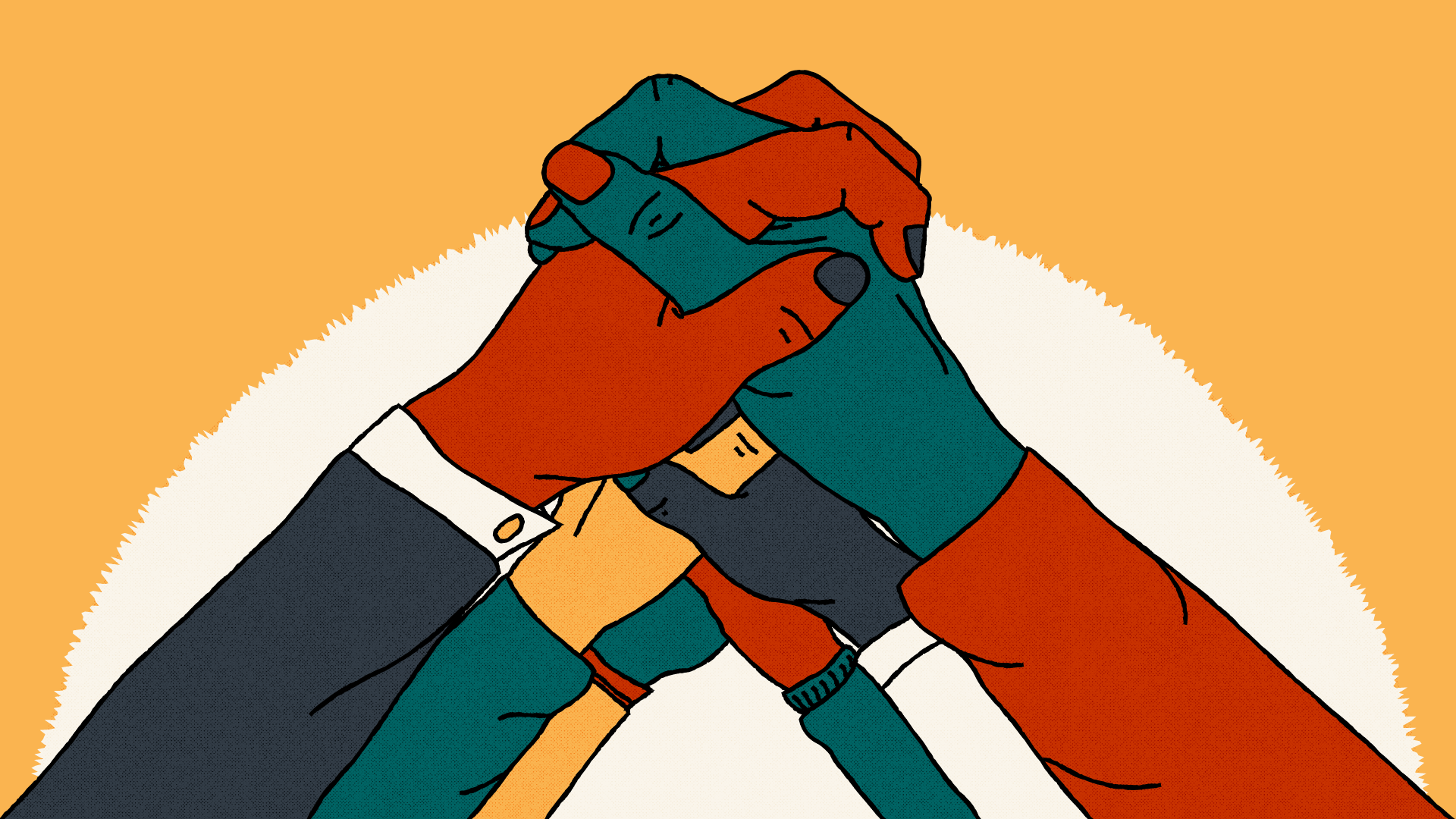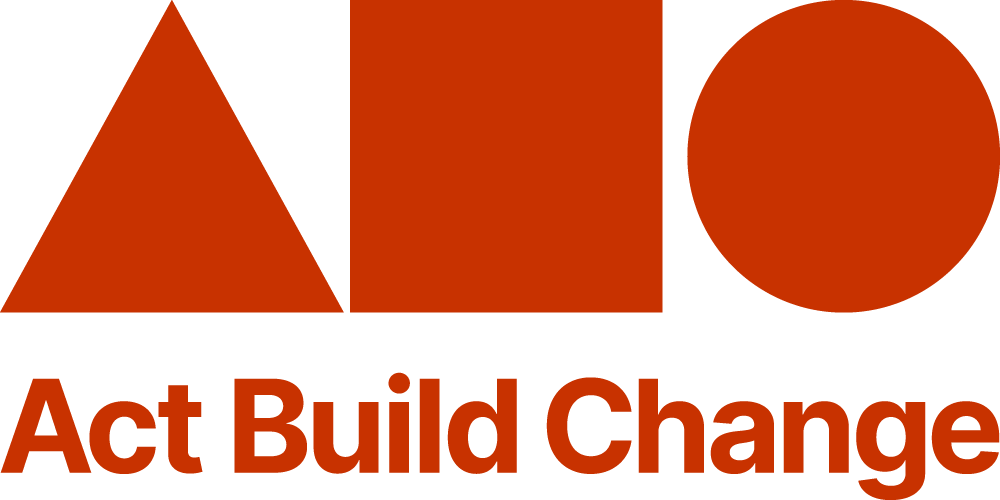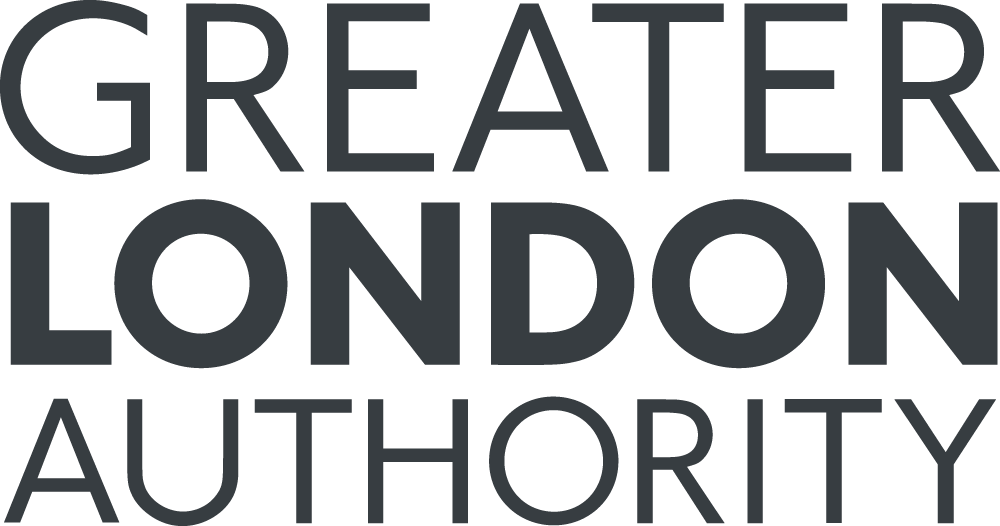
Migration Sector Wellbeing and Resilience Workbook
A collective care workbook for the migration sector.
Published 18 Mar 2025
By Act Build Change and Greater London Authority
1 Introduction
At Act Build Change we have been working with groups and organisers in the migration sector to strengthen collective care since 2018. From our work with over 200 migration sector organisations, we know collective care to be inseparable from effective community organising and campaign. EDIT
Collective care strengthens collective power by fostering solidarity, resilience, and shared responsibility. It ensures that communities support one another, preventing burnout, supporting wellbeing and sustaining movements for justice.
We are acutely aware of the challenges faced by those working in the sector and those it supports. An ever increasing hostile environment - nationally and globally - and underfunding means that vicarious trauma, burnout and isolation are common.
This workbook, which we have created as part of The Migration Sector Wellbeing and Resilience Programme commissioned by the Greater London Authority (GLA), is a practical resource to support those in the sector to strengthen cultures of care and individual care practices.
In this workbook we start off exploring what collective care is, and how we might apply it in practice in the migration sector. We introduce tools, framings and reflective questions around communication and boundaries and explore dynamics that can undermine collective care. We explore the relevance of intersectionality and anti-oppression to collective care. The final section of this workbook is written by therapist Nina Dearden and focuses on the body in migration sector work. Nina explores why the body matters in this work, how stress shows up in the body and tools and practices to support body-focused self care.
2 How to use this resource
These recommendations will be supportive to get the most out of this workbook:
- Accompaniment - this is a practical resource so we recommend that where possible you work through it in conversation with others. This might be someone you work with - a peer or a buddy. Or within your organisation you might all work through the workbook over a set period of time with dedicated check-ins to share learnings and reflections.
- Accountability - accountability with peers and with yourself will be a supportive way to commit to this. We recommend that for any task you trial, that you put 10 minutes in your calendar to check-in with yourself, or that you have an accountability buddy who you agree times to check-in with. If you are struggling to make time for the workbook you might want to block off time in your calendar each week to dedicate to working through the resource.
- Adaptive - the tools we are suggesting will benefit from being adapted to your specific contexts - we invite you to consider what adaptation can look like in your context.
- Care - reflecting on the themes in this workbook may bring up difficult feelings. We recommend that you take the opportunity to check-in with yourself alongside the work you do, and to work with the workbook in a capacity that feels contained and comfortable for you. That might mean only working on it for certain timeframes or in particular environments. When engaging with the reflective questions that are posed in this work book that require an example from real life to work with, we encourage working with an experience that isn’t so activating or weren’t so stressful. If 0 is not activating at all and 5 is very activating we recommend working with an example no more than a 2.
- Practice - the themes that we cover in this workbook, for example: identifying, communicating or honouring boundaries or connecting with your body, all require time, practice, reflection and ‘trial and error’ in order to create change. The occasions where things don’t go as we might hope can be places of rich learning! This is why we have included reflection questions and tasks. While reading alone will be useful for this - you will get a lot more out of the learning if you are able to commit to a journey of trialling and reflecting as you go.
- Leadership - we know from our work that the involvement and commitment of those with influence is key in building caring processes. We strongly recommend that managers support their teams to make the time to work through this resource - and take initiative to implement processes or systems suggested here. We recognise that across the sector different organisations have different structures, and so this will look different for different contexts.
In many of our tasks we use reflective questions. Reflective questions are useful to support leadership development, peer-to-peer learning, trauma-aware practice, managing up and to strengthen capacity to work in uncertainty. Reflective questions support collective working because they support people to take ownership of the challenges they are working through. This can unlock great potential for change and the building of agency and empowerment for the individual and open up opportunities for receiving and giving support from and to others, ultimately strengthening collective care
Reflecting on collective care requires curiosity and the ability to sit with uncertainty. There are no ‘one-size fits all’ solutions, so reflective questions can be a helpful tool to create the space for self-reflection and to identify solutions best suited to your context.
3 What does collective care mean?
Task
Reflection on collective care
To start us off - what comes to mind when you think about ‘collective care’? What does the term mean to you?
Take a moment to think about it. Draw a picture or if you would prefer write some notes.
For us at Act Build Change collective care is embodied in the words of Audre Lorde, who says “Caring for myself is not self-indulgence. It is self preservation and that is an act of political warfare”. Audre Lorde also reminds us that “Without community there is no liberation”.
Collective care is rooted in the idea of collectivism. In collectivist culture, the focus is on cooperation, mutual support, and shared goals, rather than individual achievement or profit. It can be seen in various forms across different communities, cultures,political movements and scales from communal living arrangements to resources and power being distributed more equally among people to promote fairness and reduce inequality.
Task
Think about the places and ways you have experienced or witnessed collectivism in action
- Why does it matter?
- What does it make possible?
Principles of collective care
At Act Build Change we see the following as important principles of collective care:
1. Power
Act Build Change is a community organising school. Community organising is the practice of bringing people together to work towards social change. It’s about building power in communities through collective action, solidarity, and organising people to take care of their own needs through advocacy and action. We believe that collective care is a critical pillar of community organising and that it is essential for the sustainability and success of our movements. Collective care strengthens collective power by fostering solidarity, resilience, and shared responsibility. It ensures that communities support one another, preventing burnout and sustaining movements for justice.
2. Anti-oppression and accessibility
We know from our work at Act Build Change that commitment to anti-oppression in practice is critical to collective care being realised. This means not only supporting people in times of need but creating structures, processes and caring ways of working that acknowledge the everyday conditions that contribute to wellbeing, or a lack of. This includes addressing wider cultures and systems of oppression and not individualising care. We often see how the cultures and structures of groups and institutions directly inform the possibility of those of particular lived experiences and identities to be ‘well’ and experience care in the workplace. Accessibility is connected to anti-oppression, it is important because care work is centred in thinking about who is able to organise with us. Societal barriers exclude many people including those who have physical disabilities, mental ill health, chronic conditions or those who are undocumented or poor. In working to be accessible we are working to create as inclusive conditions as possible.
3. Trauma-aware
Trauma can fuel our social justice work and affect our ability to act in the ways we want to. Depending on our identities, social conditions and life experience some of us get to feel safety, belonging and dignity more than others. Structures of oppression create traumatic conditions that harm people from marginalised groups more so than others. A trauma-aware approach puts the belonging, safety and dignity of the most marginalised at the centre of our work - and priorities reflection as much as action. By creating spaces of trust, choice, and respect, trauma-aware care strengthens collective resilience and deepens solidarity, making movements.
4. Interdependence
Interdependence is key to collective care because it recognizes that everyone’s well-being is connected. It challenges individualism, emphasizing mutual support, shared responsibility, and solidarity. By valuing interdependence, collective care creates stronger, more resilient communities where people thrive together rather than struggle alone. Collective care challenges the idea that individuals should “pull themselves up by their bootstraps” and instead points to the need for a collective approach to addressing health, safety, and emotional needs.
5. Joy
Joy is vital for collective care as it strengthens connections, sustains activism, fosters healing, and encourages generosity. It prevents burnout, builds resilience, and serves as an act of resistance against oppressive systems. Joy affirms life, deepens relationships and ensures that care is not just about survival but about thriving together.
A lot of the time we are taught that the need to work urgently towards change comes at the expense of our personal and collective care. At Act Build Change we believe care is as much of ‘the work’ as anything else. In fact, we would argue that care is the work. Be that in the relationships you hold as a team, the conversations in community and how you act on your strategy to end harmful structures and win change.
In the world as it exists today we acknowledge the challenge in this work. The resistance you may feel or receive when trying to act in ways that centre our care. Collective care is a constant negotiation. It presents moments of discomfort, challenge and real opportunities for joy and healing.
Task
Reflective exercise
Think of a time that you have experienced or witnessed collective care in your organising:
- What made this possible?
- What is one learning you would share from this with someone else?
Resources
-
Introducing Collective Care
An online training from Act Build Change – introducing collective care and practical tools.
Acknowledgements
Authors
-

Act Build Change
Training the next generation of community organisers.
Organised groups of ordinary people can and do change the world. We work with collectives to make our care-centred community organising methods accessible to the masses, focussing particularly on those closest to the issues. For us, organising and collective care goes hand-in-hand. Our team has all supported victories for systemic change - from the local to the national. We are not a training agency. We are organising practitioners who build the power of others to win. All of our work centres on anti-oppressive practice - with accessibility, intersectionality and care as pillars of our work.
-

Greater London Authority
The GLA is the devolved regional governance body of Greater London, England.
The Greater London Authority, colloquially known by the metonym City Hall, is the devolved regional governance body of Greater London, England. It consists of two political branches: an executive Mayor and the 25-member London Assembly, which serves as a means of checks and balances on the Mayor.
Links
Contributors
-
Nina Dearden
Nina is an integrative psychotherapist whose practice primarily centres around recovery from complex trauma.
Nina is passionate about helping survivors (re)discover a sense of safety and feeling of wholeness. She has worked with survivors of war, modern slavery, and persecution; but now works predominantly with survivors of early childhood abuse. Her work is informed by a commitment to understanding the varied, complex and counterintuitive ways in which experiences of trauma interact with the astounding human capacity to survive, love, and learn. She loves adapting therapeutic ideas to meet the needs of migrant communities; and has worked extensively with refugees. She has particular experience working with clients groups, such as LGBTQ+ asylum seekers and migrant women, who navigate multiple dimensions of marginalisation.
Links
Copyright
You may reproduce and distribute this work for free, but you may not sell the work to others. You must always attribute the names of the work, whether it is Act Build Change, or anyone else we reference or platform. You may modify the work, provided that the attribution remains. We may ask you to remove this attribution if the modifications are not in line with our expectations of use.